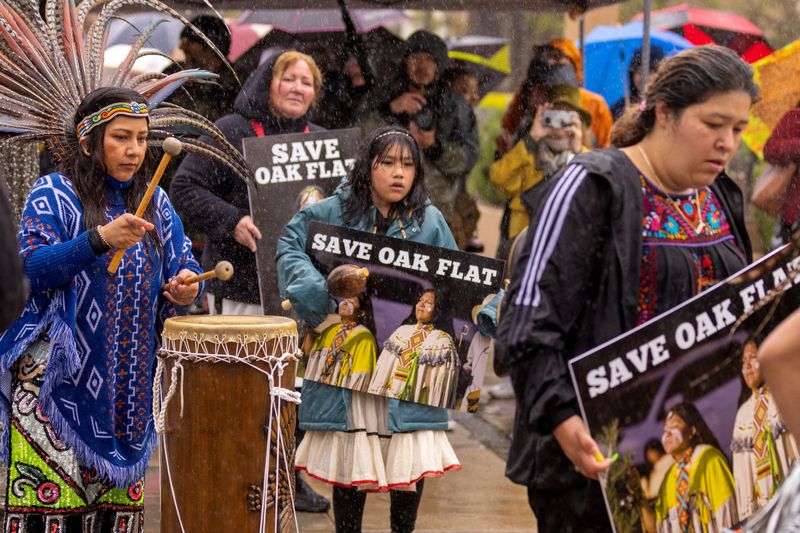By Clark Mindock
(Reuters) - A Native American group said on Tuesday it will take its fight against Rio Tinto’s proposed Arizona copper mine to the U.S. Supreme Court, after a federal appeals court refused to reconsider whether the U.S. government may have improperly transferred land to the developer.
The group said they would ask the high court to weigh in after the San Francisco-based 9th U.S. Circuit Court of Appeals rejected a longshot bid to have the full 29-judge court reconsider earlier decisions not to block a land grant for the project. The court did not provide an explanation for its decision.
The Resolution Copper project, a partnership between Rio and BHP, would supply more than a quarter of U.S. copper, which is needed to build electric vehicles, wind turbines and solar panels. Those are key to federal plans to combat climate change.
Apache (NASDAQ:APA) Stronghold, a nonprofit group comprised of San Carlos Apache tribe members and others, claim the land swap in a federal forest northeast of Phoenix violates religious protection law because it would destroy a site where indigenous ceremonies have been held for generations.
Luke Goodrich, an attorney for Apache Stronghold, said the Supreme Court has taken 25 religious liberty cases since 2011, and ruled in favor of religious liberty arguments in 24 of those.
“Blasting the central sacred site of Western Apaches to oblivion is a great violation of religious liberty,” he said.
A spokesperson for Resolution Copper said the mine plan was developed in collaboration with various levels of government, Native American communities and others. The spokesperson said they will continue engaging with those groups going forward.
The U.S. government did not immediately respond to a request for comment.

The 2,422-acre (980-hectare) plot of land in question was authorized to be transferred in 2014 by Congress as part of a defense bill, in exchange for 5,459 acres of private land elsewhere in Arizona.
An Arizona district court refused to preliminarily block the land swap in 2021, and the 9th Circuit had twice affirmed that decision before denying the latest request on Tuesday.